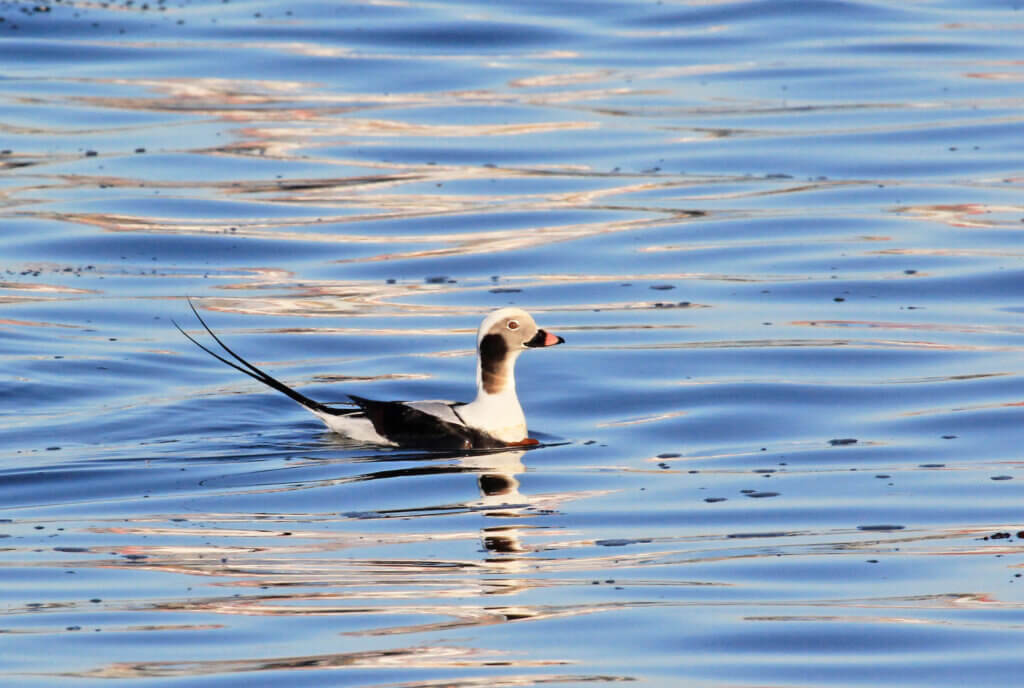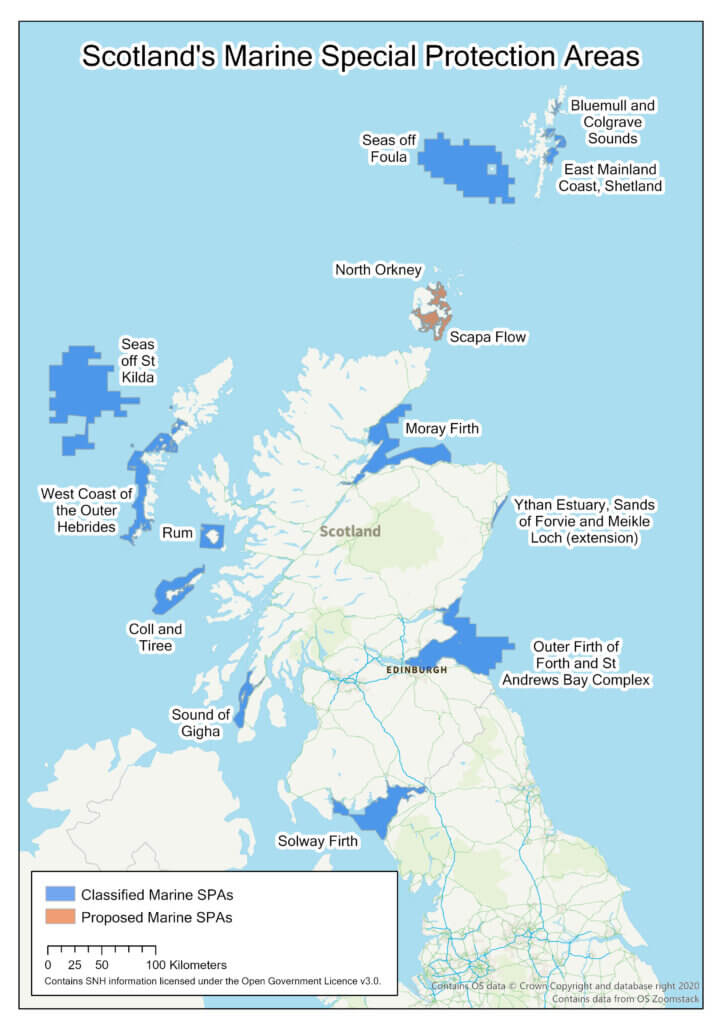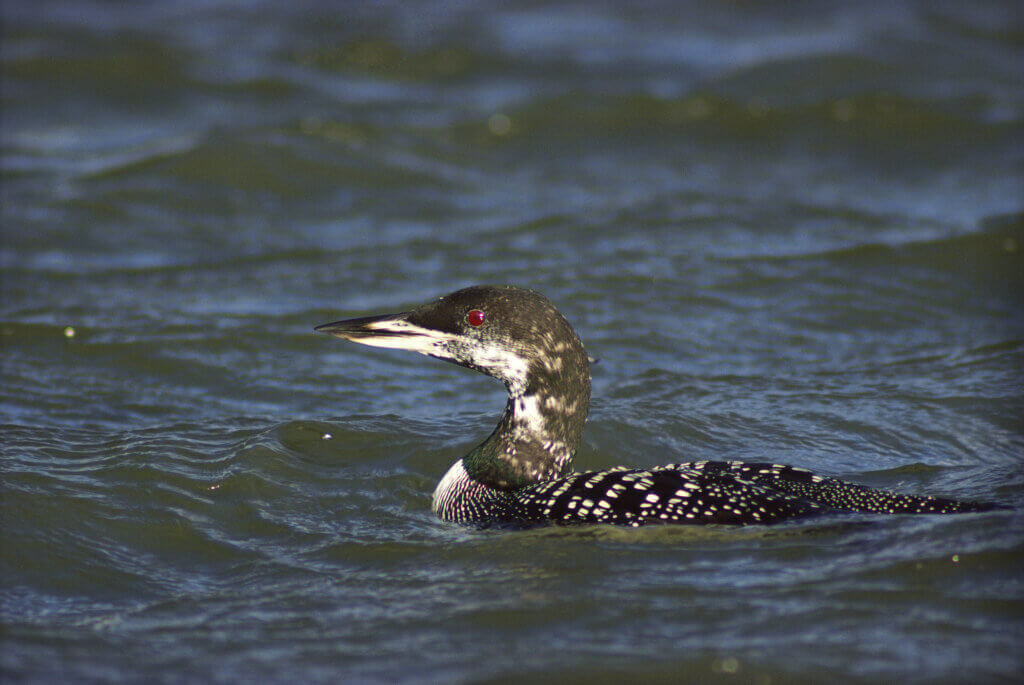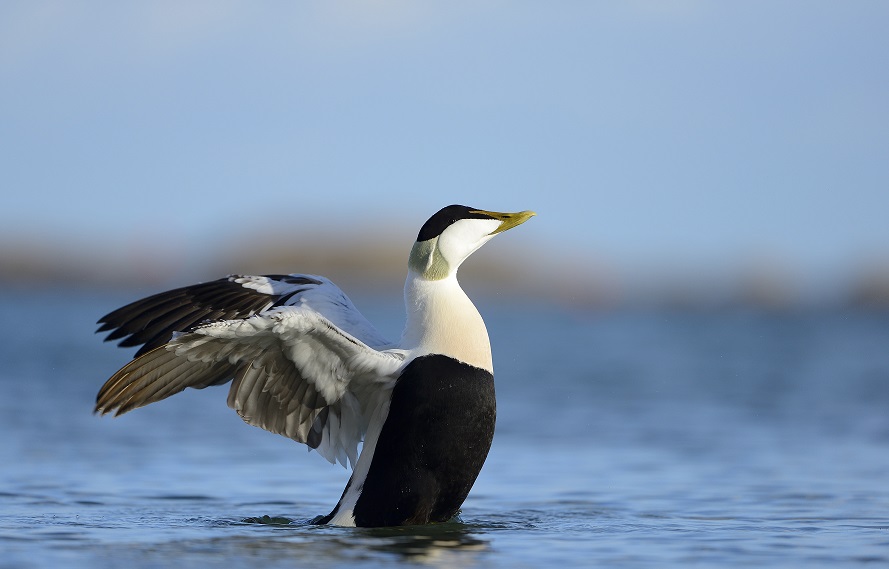RSPB Scotland welcomes seabird safe havens, but questions why Orkney sites are missing

Puffins, terns, eiders and long-tailed ducks are among the wildlife that stands to get a boost from legal protection announced today.
The long-awaited declaration of ‘Special Protection Areas’ (SPAs) will safeguard some of the places that hundreds of thousands of birds rely on for food and shelter in Scotland’s seas.
The announcement comes after extensive scientific scrutiny and consultation where the proposals received wide public support. However, RSPB Scotland has raised concerns over proposed areas in Orkney that are missing from the Scottish Government’s statement despite meeting the criteria for selection.

The Firth of Forth, and the seas around the remote islands of St Kilda and Foula are among the special areas of Scotland’s coast and seas selected for supporting internationally significant numbers of birds. However, Scapa Flow and the waters north of Orkney Mainland both recommended on the basis of scientific evidence as hotspots for wintering seaducks, divers and grebes have been held back.

The Scottish Government is required by law to select the most important places for birds on land and sea for special protection. Until now only breeding colonies on land and the coastal waters near them had been given the SPA status. Today’s announcement is the first time in Scotland that areas known to be important for birds searching for food have received this type of protection. The new legal status means that any future development and activity capable of damaging the areas must now be strictly controlled.
Many of Scotland’s globally important seabird populations are in trouble and face a cocktail of man-made threats on land and at sea. Several species are already suffering from the effects of climate change. Kittiwakes have been particularly affected, with numbers in Scotland thought to have dropped by 70% since the late 1980s.
RSPB Scotland is now calling on government to urgently progress the missing Orkney sites and to commit to resource and enforce management plans for the new protected areas. Effective management is crucial to build resilience in struggling populations and help reverse the worrying trend of widespread breeding failure and declines.
The announcement on the SPAs to protect birds is the latest milestone in over a decade of considering how to fulfil legal requirements from the EU Wild Birds Directive. It comes alongside the declaration of four new marine protected areas for basking sharks, minke whales, Risso’s dolphins as well as the lesser sandeel, a vital source of food many seabirds.
Alex Kinninmonth, Head of Marine Policy at RSPB Scotland said: “We certainly welcome the protected areas declared today but any joy is tempered by what is missing in Orkney. We are requesting urgent clarity from the Minister on her intentions, as we are at a loss to understand why after receiving robust scientific advice from her nature advisors supporting the sites, she has chosen to add yet further delay and uncertainty.
We are in the midst of a global climate and nature emergency that requires urgent changes to how we manage our land and ocean, so we’re under no illusion that these sites alone will reverse the fortunes for Scotland’s seabirds. It’s only through sustained investment and enforced management plans that they will become a cornerstone of efforts to revive our coasts and seas.
The sight and sound of hundreds of thousands of seabirds flocking to our shores every year is an amazing natural spectacle that must be protected for future generations to experience.”

Ends
[registration_form]
According to recent reports in the Guardian, MPA’s provide very little real protection and are more of a paper exercise…
https://www.theguardian.com/environment/2020/dec/03/auditors-slam-eu-for-marine-protected-areas-that-fail-to-protect-ocean
https://www.theguardian.com/environment/2020/oct/09/revealed-97-of-uk-offshore-marine-parks-subject-to-destructive-fishing
Will – these are SPAs.
I think MPA is a broader designation that would include SPA’s amongst others, but I may be wrong…
Will – that is right
Will controls on future development include halting construction of offshore wind farms? I hope so, and this could be especially important in the Moray Firth. We need to stop a blinkered obsession with “green energy” and realise that all infrastructure has an impact on the natural world, and that “green” energy is often anything but green due to habitat destruction.